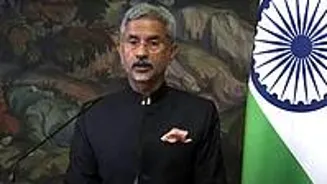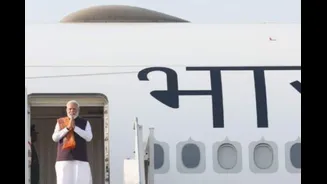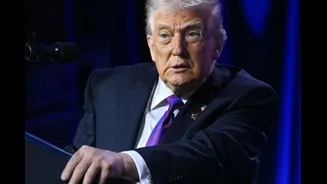New Delhi: External Affairs Minister S. Jaishankar on Saturday maintained India’s line on buying oil from Russia. Explaining the impasse in the relationship, the Jaishankar said India needed to understand
that it was dealing with a president who conducted foreign policy in a very different manner. “President Trump’s way of dealing with the world is a departure from the current orthodox manner of doing so. We’ve not had a US president who has conducted foreign policy as publicly as the current one does.
Jaishankar slams US tariffs as unjustified
The minister dubbed the US tariffs on India as “unjustified and unreasonable” and maintained that India had continued to buy Russian oil with the knowledge and encouragement of the previous Biden administration.
He said that India's priority was to protect farmers and small producers, stressing that New Delhi would not compromise on their interests.
"What we are concerned about is that red lines are primarily the interest of our farmers and, to some extent, our small producers.
So when people pronounce that we have succeeded or failed, we as a government are committed to defending the interests of our farmers and small producers. We are determined on that. That's not something we can compromise," Jaishankar said.
Speaking about the series of conversations the government had with the Biden administration, Jaishankar said there was a very real nervousness within the US that world energy prices would shoot up if Russian oil was taken off the market.
Biden admin backed India’s Russian oil imports
“We had a series of explicit conversations with the Biden administration, which said that we have no problems with you buying Russian oil. This is where the idea of an oil price cap came up. How else did the oil price cap idea come about? You can't say I object to your buying oil, but I have a price cap,” said the minister. He added that India’s buying of Russian oil did not pose a problem to the current Trump administration, till recently.
“After January, there was never any conversation with this administration saying don’t buy oil.”
The Trump government has continued to attack India for its ongoing crude oil imports from Russia, for which it has put a tariff of 25% on Indian exports to the US. The tariff, which will come into force on August 28, ensures there will be an overall 50% tariff on Indian exports.
Speaking about the relationship today, Jaishankar said there were three key issues where India and the US were facing problems. The first issue was trade, on which the minister said India had its red lines. While stating that dialogue was continuing with the US, he added India would not compromise on its key interests, which were the interests of its farmers and small producers. On oil, the minister stated that the arguments used to target India did not seem to apply to other countries. China bought more oil from Russia than India, the European Union bought more LNG from Russia than India, and other countries had a larger surge in trade with Russia post2022 than India. Also, as the minister pointed out, India had the right to exercise its strategic autonomy to buy crude oil from wherever it wished and sell it as refined oil if it chose to.
“Funny to have those who work for a pro-business US administration accusing other people of doing business. That is really curious,” said Jaishankar. He added. “The point is, if you have problems buying oil or refined oil products from India, don’t buy it. Nobody is forcing you to buy it.”
Donald Trump’s mediation claim dismissed by India
The third issue the minister maintained was the question of mediation and of India exercising the right to its strategic autonomy. Commenting on President Trump’s assertion that he stopped the war between India and Pakistan during Operation Sindoor, the minister said that there was no scope for mediation.
“There is a national consensus on mediation. Since the 1970s, we do not accept mediation in our relations with Pakistan. We will maintain our strategic autonomy.”
Jaishankar, however, said that the lines of conversation remained open and added that this was not the first time the India-US relationship had faced issues. Pressure from Pakistan during the signing of the Indian nuclear deal and the Obama administration’s interest in a G-2 with China were causes for concern.














